Detailed introduction of Technical University - Sofia:
Introduction and Overview
The Technical University of Sofia is the largest and leading technical university in Bulgaria, providing professional engineering education based on expanding research activities and in line with the latest technological advances for the benefit of industry and society.
History and Founding Date
The university was established on October 15, 1945, originally as the Department of Mechanical Engineering of the Sofia National Technical School. On June 10, 1953, it was renamed the Higher Institute of Mechatronics. On July 21, 1995, the National Assembly passed a resolution to upgrade it to a technical university.
Strength of School Operation
Faculty: It has many experienced and professional teachers to provide high-quality teaching and guidance for students.
Scientific Research Achievements: It conducts basic and applied research in many fields such as computer science, network security and artificial intelligence, virtual engineering, mechatronics and clean technology, energy and renewable energy, electronics, automation and robotics, bioengineering, industrial chemistry, etc., and has achieved certain scientific research results. It works closely with the industry to create employment opportunities for graduates and promote their career development as engineers or researchers.
International cooperation: Cooperating with more than 50 universities in Europe, Asia, North America and Central America, it is one of the eight partner universities of the European Technical University Alliance EUT +, actively participating in international projects such as Horizon 2020, Erasmus +, and cooperating with international organizations such as NATO and UNESCO.
Nature of the institution
Public university with academic autonomy.
Educational philosophy
Its mission is to meet the society's demand for high-quality engineering professionals, so that the results of the university's basic and applied research activities can respond to the needs of industry, and is committed to cultivating students who not only pursue knowledge, but also actively integrate, express belonging and show empathy in the academic community.
Key laboratories and disciplines
Key laboratories: No publicly outstanding specific key laboratories have been found, but each college has corresponding scientific research experimental facilities and research centers to support teaching and scientific research.
Key disciplines: In six professional fields such as mechanical engineering, electrical engineering, electronics and automation, telecommunications and computer system technology, power engineering, transportation, shipping and aviation, and general engineering, it ranks first in Bulgaria. Disciplines such as computer science, electronic engineering and technology, and automation have strong strengths and high teaching and research levels.
Faculty
Sofia Campus: 11 faculties including Faculty of Automation, Faculty of Electronic Engineering and Technology, Faculty of Electrical Engineering, Faculty of Power Engineering and Power Machinery, Faculty of Computer Systems and Control, Faculty of Communications and Communication Technology, Faculty of Mechanical Engineering, Faculty of Mechanical Technology, Faculty of Management, Faculty of Transport, Faculty of Applied Mathematics and Information, and Faculty of Applied Physics.
Plovdiv Campus: Faculty of Electronics and Automation, Faculty of Mechanical and Equipment Engineering.
Sliven Campus: Faculty of Engineering and Education.
Faculty of Foreign Language Education: Faculty of Engineering Education and Industrial Management in German, Faculty of Engineering in English, Faculty of Electrical Engineering in French.
Ranking
Ranked 1501+ in the 2025 THE World University Rankings.
Ranked 801-1000 in Computer Science, 501-600 in Education, 1001+ in Engineering, and 1001+ in Physical Sciences in the 2024 THE World University Rankings.
Fees
Tuition fees vary depending on the major and degree level. Usually, the annual tuition fee for undergraduate students is around 2,000-5,000 euros, and the tuition fees for master's and doctoral students are relatively higher.
Campus environment
Campus distribution: There are five campuses in Sofia, Plovdiv, Sliven, Botevgrad and Kazanlak. The main campus in Sofia includes 14 buildings, such as administrative buildings, teaching buildings of various colleges, university press, university information resource center, language center, etc. There is also a separate sports center with an Olympic standard swimming pool and other sports venues.
Student dormitory: Located in the student city at the foot of Vitosha Mountain in Sofia, it is a 25-30 minute bus ride from the center of Sofia. It has complete infrastructure, various shops, restaurants, Internet cafes, sports facilities, etc. The monthly rent of dormitory rooms depends on the housing standards and is currently 30-40 euros.
-
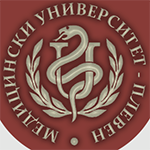
Medical University-Pleven
-

Trakia University
-

Burgas Prof. Assen Zlatarov University
-

Varna University of Management
-
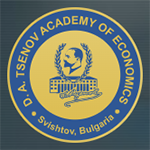
D. A. Tsenov Academy of Economics
-

Technical University - Sofia
-
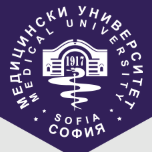
Medical University of Sofia
-

Plovdiv University
-
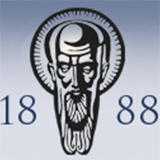
Sofia University
-
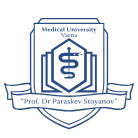
Medical University-Varna
-

Mesoamerican University
-

Istmo University
-

Mariano Galvez University of Guatemala
-

Regional University of Guatemala
-

Galileo University
-

Francisco Marroquín University
-

Rafael Landívar University
-

University of the Valley of Guatemala
-

University of San Carlos of Guatemala
-

Technological Institute of Tlaxcala Plateau
-

Golfo University
-

Technological University of South Sonora
-

Technological University of Huejotzingo
-

Tizimín Institute of Technology
-

Chilpancingo Institute of Technology
